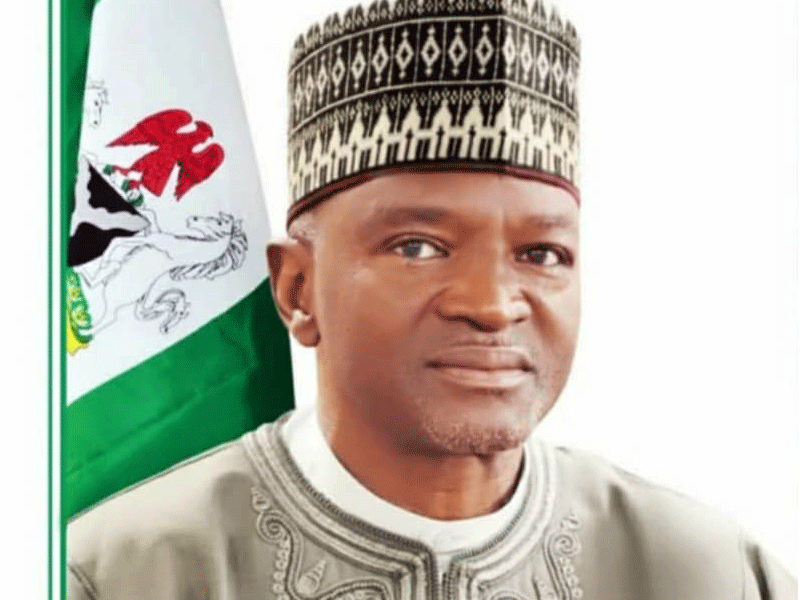The increase of agricultural production in the past 50 years has assured food for a growing population worldwide. However, the performance of agriculture systems in Africa is still low, especially in sub-Saharan countries like Nigeria, despite the abundant resources we have. While improvements in food production per capita have been possible in Northern Africa, significant drops have been experienced in sub-Saharan countries, only partially due to conflicts and political instability.
Rapidly growing population, soil degradation and fragmentation of farming systems are some of the challenges for food security in Africa. In Nigeria, insecurity is taking centre stage as various armed conflicts are affecting agricultural activity in some of the key areas of agricultural production. Nigeria, and other countries have to figure out ways of improving productivity and not only closing the gaps that these conflicts have created, but leapfrogging to catch up with an already advanced world and an ever increasing demand for food and other agricultural produce at home and abroad.
- Soludo begins supervision of cleanup of Onitsha, other LGAs in Anambra
- Food crisis looms as kidnappers target farmers
Several agricultural productivity intensification projects with alternative approaches and techniques have been developed in different countries, and they have produced documented benefits for 10 million farmers and improvements on approximately 13 million hectares. Many experts have several times established that the productivity of African agriculture could be greatly increased by improving the access of farmers to knowledge. This could include, better agronomic practices, soil, water and nutrient management, pest control and alert, improved and market preferred varieties, climatic event warnings, and so on, disseminated by means of improved support services, based on information technologies which have been proven to work and improve productivity. As you know, smallholder farmers in Africa who manage 85 per cent of arable land with few resources often have a wealth of knowledge about coping in adverse conditions, but usually have the least access to other necessary support. To address the anticipated changes in climate, increased innovation is needed with farmers and communities participating in learning networks, based on science to complement existing local knowledge.
In African agriculture, innovative systems need to ensure that science works with local knowledge rather than overriding it, and that small scale farmers are not only able to access knowledge but also to shape how it is developed. Local knowledge is rich, relevant, and mostly reliable particularly when it is combined with local food processors who are key players of an adaptive economy able to add value to the local products. Supporting farmers and rural communities with better technical knowledge and information related to the agro-environment, the market, and other factors is the social and human capital needed for a sustainable intensification in the face of many challenges faced by Nigeria and much of the African continent. Innovative co-learning and extension platforms, supported by the large diffusion of mobile phone even among the poorest, can provide information such as agronomic practices, climate, pest alert, and so on, better in the current underfunded, crippled and ineffective in-person extension system.
In the face of all that is happening with security and climate challenges, it is imperative to have an innovative and scalable system to increase productivity of smallholder agriculture, shifting it from subsistence to profitability. My belief has been that in order to unleash the potential of our agricultural systems, we must enhance traditional agriculture practices with the scientific and quantitative information from various technologies ranging from satellite to digital services in order to increase agricultural productivity, regenerate the valuable resources, particularly soil, water, forests and biodiversity, and by preserving the ecosystem services that are key to the life that future generations depend upon.
We have demonstrated through projects, research and even a social enterprise the need to apply an approach of integrated analysis of farming systems, that first identifies the traditional farming practices, and then assesses the agro-ecological resources and land potential of any given farm through high resolution earth observation. Doing this will also include the analysis of the socio-economic baseline of farming systems and the portfolio of ecosystem services underpinning the farming landscape. Subsequently, sustainable intensification strategies can be designed jointly with farmers, so that they are market oriented and then demonstrative pilots can be implemented. The delivery of specific technology solutions for sustainable intensifications to farmers follows only if you have this baseline data, as does a well-designed dissemination strategy.
Any agricultural transformation project has to work with the existing ecosystem to succeed. This is why local traditional agricultural practices have to be given full attention and are always pivotal to the success of projects. From the very beginning we promote a thorough consultation with stakeholders (individual farmers, farmer extension service, farmer organizations) to be carried out. Stakeholder engagement activities throughout our project cycles have mostly been supported by international organisations, and local groups leading to the establishment of very strong network with farmers. This cannot be overemphasized.
The truth is, without accurate information on the side of the farmer, we can almost never achieve sustainable intensification of agricultural productivity. Farmers operate in a complex web of external factors, drivers (such as market, global trade, policies), site-specific and personal characteristics (such as farm size, soils, agro-ecological zoning location, infrastructure, machinery, human resources, expertise), resources inputs and outputs (like labour, money, energy), all requiring decisions to be made at short time frame (how much to fertilize/irrigate where and when) and long range (e.g., organic farming) in order to reach a sustainable intensification. These decisions must rely again on an accurate information about crop status in space and time and about the impact on ecosystem services in order to minimise inputs, maximise productivity and ensure delivery of services.

 Join Daily Trust WhatsApp Community For Quick Access To News and Happenings Around You.
Join Daily Trust WhatsApp Community For Quick Access To News and Happenings Around You.


